Event
Lawmakers from 24 countries visit Taiwan to Counter Authoritarian Influence from China
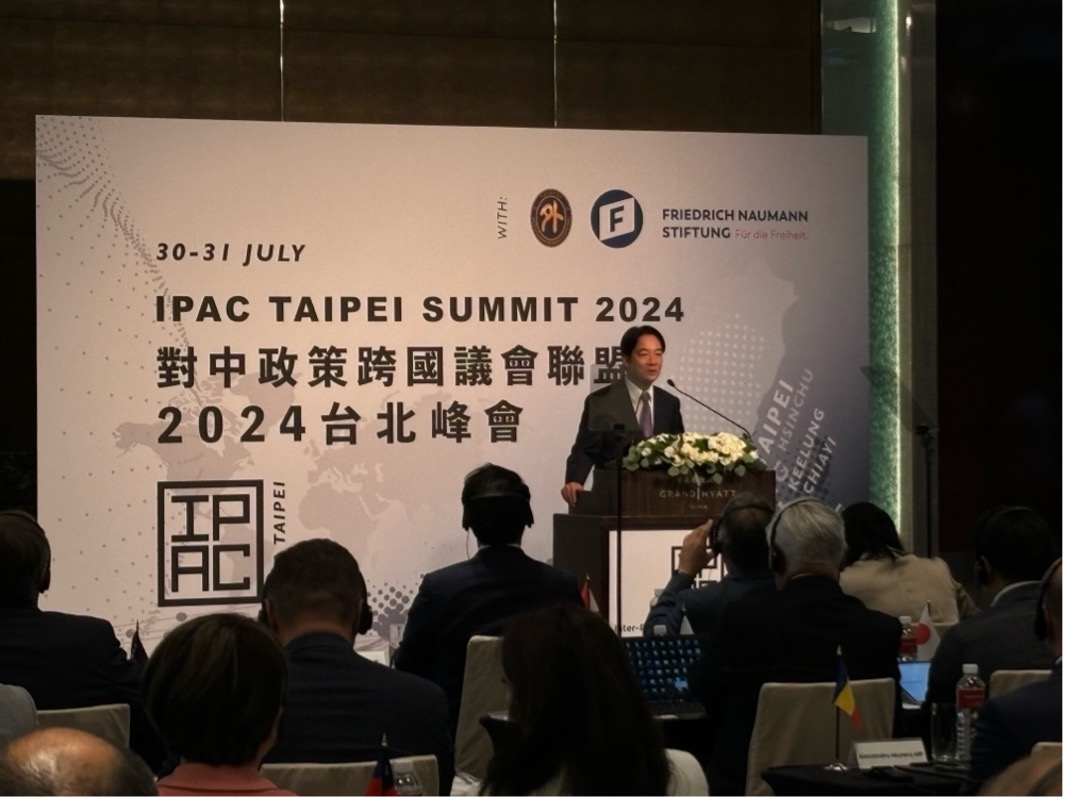
Taiwan President William Lai speaks at the 2024 IPAC Summit, co-hosted by the FNF Global Innovation Hub in Taipei and IPAC.Taiwan President William Lai speaks at the 2024 IPAC Summit, co-hosted by the FNF Global Innovation Hub in Taipei and IPAC.
The Global Innovation Hub in Taipei co-hosted the Inter-Parliamentary Alliance on China (IPAC) Summit from July 30-31, 2024 with IPAC, gathering 49 members of parliament from 24 countries and the European Parliament.
Delegates passed a resolution challenging China’s interpretation of United Nations General Assembly Resolution 2758, which was passed in 1971. The resolution clarified that while the PRC is recognized as the legal representative of China, it does not address Taiwan's status.
The resolution emphasized that UNGA Resolution 2758 did not endorse the “One China Principle” as international consensus, nor did it mandate Taiwan’s exclusion from international organizations or influence other countries' sovereign decisions regarding relations with Taiwan.
In the summit, the lawmakers spotlighted China's infiltration into local politics, where local authorities often lack the capacity to respond. The PRC’s “overseas police stations,” disguised as ordinary shops, have been harassing China's diaspora and overseas students, posing significant threats to human rights and the rule of law worldwide. The summit also underscored China's use of economic coercion.
Several members received threats from the People's Republic of China (PRC) prior to the summit, which IPAC deplores and condemns as attempts to interfere.
The summit attracted significant media attention in Taiwan. President William Lai and Vice President Bi-khim Hsiao delivered speeches, along with Nobel Prize and FNF Freedom Flame Award winner Maria Ressa, who emphasized the importance of press freedom and democracy at the luncheon speech.
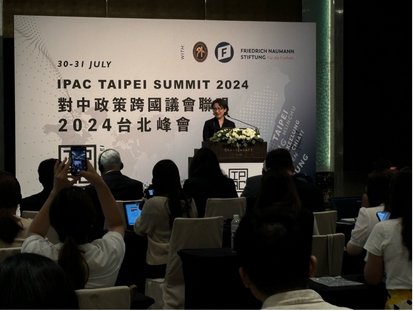
Taiwan Vice President Bi-khim Hsiao speaks at the 2024 IPAC Summit, co-hosted by the FNF Global Innovation Hub in Taipei and IPAC.
Taiwan also became the official member of IPAC this year after legislators from two different major political parties in Taiwan accepted the invitation. Legislator Fan Yun (Democratic Progressive Party, DPP) and Legislator Chen Chao-tzu (Taiwan People’s Party, TPP) were also appointed as IPAC co-chairs together with members of parliament from countries from across the world.
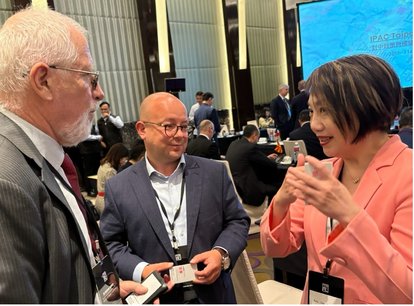
Taiwanese Legislator Fan Yun (DPP) exchanges views with German MP Frank Müller-Rosentritt (FDP) at the 2024 IPAC Summit in Taipei
During the IPAC summit, the Global Innovation Hub organized a “Civil Society Dialogue” to facilitate the exchange of ideas between IPAC delegates and Taiwanese and international civil society since civil society is an important strength to counter authoritarian influence. This dialogue was conducted in a marketplace format, with civil groups setting up booths to present their work and engage with political communities around the world.
For this session, the hub invited several Taiwanese and international NGOs, including FNF’s partners: Open Culture Foundation, the Taiwan Economic Democracy Union, Awakening Foundation, and important civil society members: Kuma Academy, Reporters Without Borders (RSF), Taiwan Alliance to End the Death Penalty, Watchout, Ghost Island Media, and Safeguard Defenders and many other organizations.
Dr. Rainer Adam, the interim head of the FNF Global Innovation Hub, inaugurated the Civil Society Marketplace by recalling his experience of conducting research in Taiwan during the martial law period in 1983 as a doctoral student. Over the past few decades, he has witnessed Taiwan’s transformation from an authoritarian state to a vibrant democracy, with civil society organizations playing a crucial role.
By supporting the summit, the Global Innovation Hub is honored to stand alongside politicians and political activists from various countries and Taiwanese civil society organizations in upholding the values of democracy, freedom, and the rule of law.
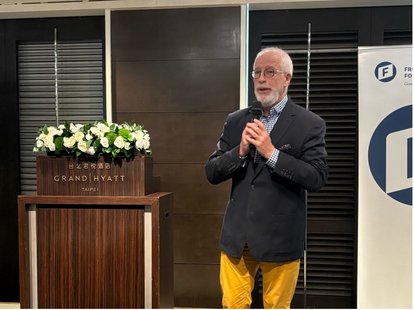
Dr. Rainer Adam, the interim head of the FNF Global Innovation Hub, gives opening remarks for the Civil Society Marketplace at the IPAC 2024 Summit in Taipei.
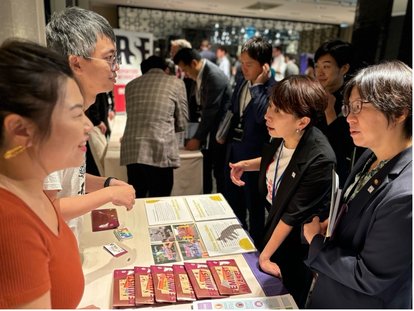
Taiwanese NGO Awakening Foundation presents its work regarding gender equality to Japanese parliamentary members.
